Until We Are All Equal: Protecting Equal Rights
Event description
Continuing our IIGH 5th anniversary event series with its focus on power, partnerships and rights, we invite you to join us for the third of these events as we explore the importance of equal rights, alongside the need for equal power dynamics and partnerships in global health. This virtual event “Until We Are All Equal: Protecting Equal Rights,” will take place on Wednesday, November 13th, at 9:00 am PST/12:00 pm EST/6:00 pm CET.
Promoting and protecting health-related human rights has been central to the mission and vision of the USC Institute on Inequalities in Global Health since we came into being in 2019. Over the past five years, we have witnessed devastating attacks on health-related human rights across the globe. These rights regressions are of tremendous concern and threaten the decades of work that have advanced the health and human rights of all people.
This one-hour virtual panel will emphasize the importance for health of reclaiming rights amid anti-rights and anti-gender movements in this complex geopolitical moment. Our conversation will reflect in particular on current opportunities and constraints in the field of sexual and reproductive health and rights, and explore strategies for disrupting unequal power dynamics and pushing forward with equal partnerships to better protect rights, health and well-being. This virtual IIGH 5th anniversary event will bring together key health and human rights professionals with the aim of spurring a collective vision for advancing health and rights in the next five years, and beyond.
The conversation will begin with an introduction from IIGH Director Sofia Gruskin and will be moderated by IIGH Research Director Laura Ferguson.
The webinar is hosted by the USC Institute on Inequalities in Global Health.
Please join us on Wednesday, November 13, at 9:00 am PST/12:00 pm EST/6:00 pm CET.
Speakers:
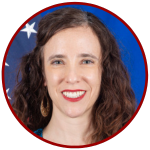
Appointed by President Biden, Jessica Stern serves as the United States Special Envoy to Advance the Human Rights of Lesbian, Gay, Bisexual, Transgender, Queer and Intersex (LGBTQI+) Persons. Special Envoy Stern leads U.S. efforts to protect LGBTQI+ persons globally from violence and discrimination. Prior to joining the Department of State, Stern led Outright International, a global LGBTQI+ human rights organization, as its Executive Director for ten years. At Outright, Stern helped the organization secure observer status at the United Nations, release human rights reports annually, built the world’s largest COVID LGBTQI+ grant-making program, and quintupled the budget. Before Outright, Stern was a researcher and advocate at Human Rights Watch, Amnesty International, and the Center for Constitutional Rights. She was a founding member of the UN LGBTI Core Group and of its secretariat. Stern successfully campaigned for the first UN General Assembly resolution to include gender identity and for successive Human Rights Council resolutions on sexual orientation and gender identity, leading to the establishment of the Independent Expert on Sexual Orientation and Gender Identity. Stern provided the first LGBTQI+ rights expert testimony in a UN Security Council Arria-formula meeting. Stern has frequently served as an advisor to UN mechanisms, including as a founding member of the UNWomen LGBTI Reference Group.
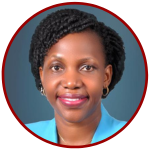
Salima Namusobya is the Vice President for Africa at the Center for Reproductive Rights, a global advocacy organization dedicated to advancing reproductive rights, and an expert member of the Working Group on Economic, Social and Cultural Rights of the African Commission on Human and Peoples’ Rights (ACHPR). She was the founding Executive Director of the Initiative for Social and Economic Rights, and previously served in various capacities at the Refugee Law Project, School of Law, Makerere University, and as Eastern Africa coordinator for a global project on International Law in Domestic Courts. She is a lawyer who has specialized in human rights law and forced migration. She has vast experience in legal and policy development, research, litigation, and advocacy to advance social and economic rights – including reproductive rights, especially on the African continent. She is a board member for several national and international human rights NGOs, and is a member of the Uganda Law Society and the East Africa Law Society.
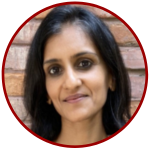
Sapna Desai is a public health specialist based in New Delhi, India whose work spans grassroots implementation and organizing, evidence generation and policy action. She focuses on women’s health and SRHR over the life course, women's groups and their role in improving health and social protection, and health systems on the path to universal health coverage. Her current work in India includes research and action on: the causes and consequences of early hysterectomy and its effects on women's health over the life course; community participation and primary health care; and the pathways between economic and health security for women in the informal economy. Desai previously worked with the Population Council, where she co-led the global Evidence Consortium on Women’s Groups, and served as national health lead with the Self-Employed Women’s Association, India’s largest organization of women workers in the informal economy. Desai is a Senior Fellow at the Population Council Institute, India and Advisor, SEWA Health. She also co-chairs the board of Sexual and Reproductive Health Matters and serves as Adjunct Faculty, BRAC JPG School of Public Health in Bangladesh. She holds a PhD in Epidemiology and Population Health from the London School of Hygiene and Tropical Medicine and a master’s degree in Population and International Health from the Harvard School of Public Health.
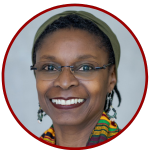
Pascale Allotey is the Director of WHO’s Department of Sexual and Reproductive Health, including the UNDP-UNFPA-UNICEF-WHO-World Bank Special Programme of Research Development and Research Training in Human Reproduction (HRP). Bringing over three decades of experience as a global public health researcher, Allotey is a leader in gender, equity, health and human rights. She has published extensively including on: sexual and reproductive health and rights; harmful traditional practices; gender, sex and disease; decolonization of global health and international development; migrants and refugees; health systems research; implementation research, and community engagement. Allotey is a triple-certified nurse, midwife and public health nurse with a multidisciplinary background in clinical health sciences, implementation research, anthropology, and epidemiology. She holds a PhD in Public Health and a MMedSci in Community Health from the University of Western Australia, and a BA in Nursing and Psychology from the University of Ghana, Legon. Prior to joining WHO, Allotey was Director of the United Nations University International Institute for Global Health (UNU-IIGH) in Kuala Lumpur Malaysia. Originally from Ghana, her previous posts include: Professor of Public Health and Deputy Head of School (Research) at the Jeffrey Cheah School of Medicine and Health Sciences, Monash University (Malaysia); founding Associate Director of the South East Asia Community Observatory (SEACO Malaysia); Professor of Race, Diversity and Professional Practice, Brunel University (United Kingdom).
Moderator:
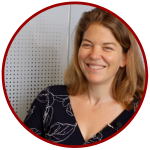
Laura Ferguson is an Associate Professor of Population and Public Health Sciences at the University of Southern California, the Director of the Program on Global Health & Human Rights, and the Director of Research at the USC Institute on Inequalities in Global Health. Her research focuses on understanding and addressing health system and societal factors affecting health and the uptake of health services as well as developing the evidence base of how attention to human rights can improve health outcomes. She is interested in innovative methodologies to better understand how societal-level interventions can improve health, and she has carried out many large-scale evaluations with this aim. She collaborates with a range of United Nations agencies as well as foundations, universities, and non-governmental organizations in different countries. She has spent extended periods of time living and working in low-income countries, primarily in sub-Saharan Africa. Her work focuses primarily on HIV, sexual and reproductive health, and child health. She is also an associate editor for Sexual and Reproductive Health Matters and the American Journal of Public Health. Ferguson earned her SM in population and international health from the Harvard University School of Public Health and her PhD from the London School of Hygiene & Tropical Medicine.
Introductory Remarks:
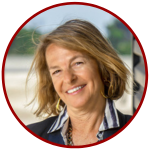
Sofia Gruskin directs the USC Institute on Inequalities in Global Health (IIGH). She is USC Distinguished Professor of Population, Public Health Sciences & Law, Professor of Preventive Medicine and Chief of the Disease Prevention, Policy and Global Health Division at the Keck School of Medicine, and Professor of Law and Preventive Medicine at the Gould School of Law. A pioneer in bringing together multidisciplinary approaches to global health, her work — which ranges from global policy to the grassroots level — has been instrumental in developing the conceptual, methodological and empirical links between health and human rights. She currently sits on numerous international boards and committees including the PEPFAR Scientific Advisory Board, the Lancet Commission on Gender and Global Health, the IUSSP Steering Committee to Strengthen Civil Registration and Vital Statistics Systems, and the Lancet Commission on Health and Human Rights. She has published extensively, including several books, training manuals and edited journal volumes, and more than 200 articles and chapters.
Tickets for good, not greed Humanitix dedicates 100% of profits from booking fees to charity


